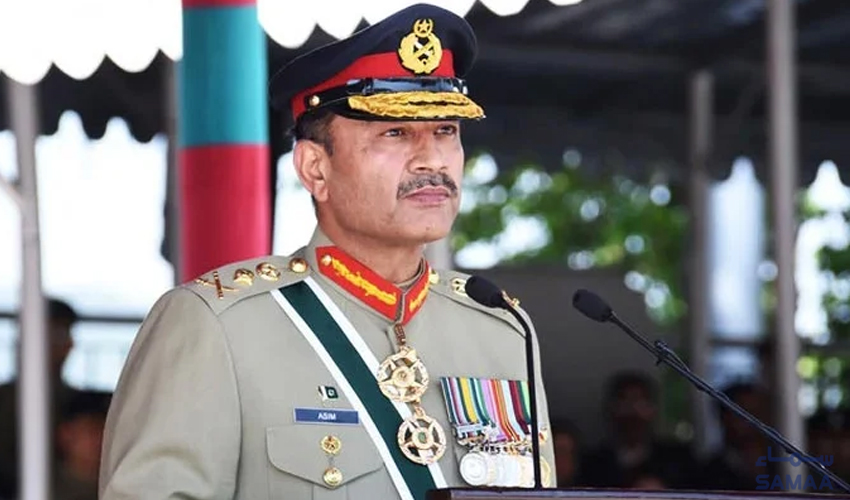COAS stresses commitment to zero tolerance for any form of instability
Gen Munir says complete independence not possible without economic stability
Gen Munir says complete independence not possible without economic stability
Among these officers are those holding Grade 21 and 22 positions
Reprimands the Secretary of the Cabinet Division
The strike also halted PSQCA clearance certificates for importers and exporters
Police will now seize non-customs vehiclesRevenueRevenue
The digital city is scheduled to become operational by 2026
Ebad Hassan and Zahid Abbas reached Pakistan via the Wagah-Attari border.
According to the police, crackdown occurred in Shahdara, Sadar Bazar, Garhi Shahu, and other areas
Rana Sanaullah urges Nawaz Sharif to resume his role as the party president
Gen Munir says complete independence not possible without economic stability
The cabinet also approved special court in Makran division for anti-narcotics cases
New rain spell to fall in Lahore with intermittent rains from tomorrow till April 31
Gold price fluctuation are directly linked to changes in value of US Dollar
Wasa, Traffic Police are in the field to facilitate citizens safely to their destinations
Read latest party position in the National Assembly
Among these officers are those holding Grade 21 and 22 positions
Atletico goalkeeper Jan Oblak acknowledges challenges his team faces
‘Begum Jaan’ actress amasses over 10m followers
Cashless Hajj, Umrah experience introduced, significantly enhancing convenience by reducing fees, taxes
Following the widespread arrests of anti-war protesters, a pro-Palestinian group filed a civil rights complaint against Columbia University
'Establishment of nutrition force topmost priority of Punjab CM', says minister
Owner attributes her unusual colouration to biliverdin, benign bile pigment encountered in womb
Implementing reporting standards 18 has its challenges, but offers long-term benefits

